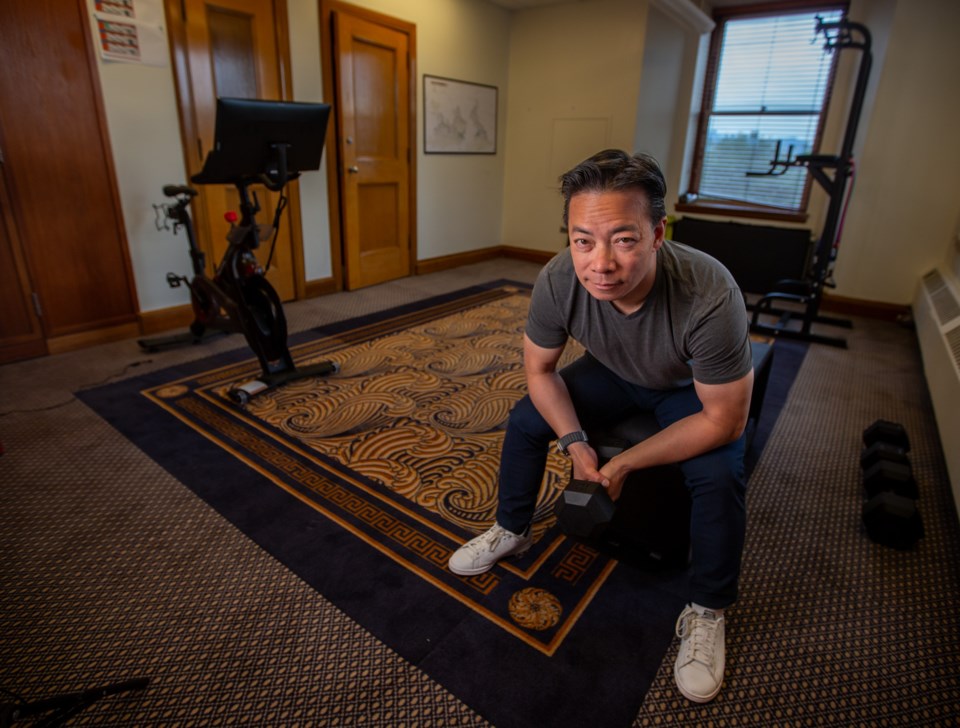Another year of writing about civic affairs has come to a close.
The year 2024 has been good for stories.
Lots to highlight.
Topics included crime trending down, the clearing of the CRAB Park encampment, a controversial vote on whether to reverse a policy on banning natural gas in the construction of new homes, and the city falling short of provincial government-mandated housing targets.
An illegal mushroom dispensary became the subject of a business licence hearing.
City staff produced a report saying up to $70 million in savings could be achieved over a decade, — but only if the elected park board is abolished and parks and recreation becomes the jurisdiction of council.
A property tax hike was set at 3.9 per cent for 2025.
Christine Boyle resigned her council seat to win the Vancouver-Little Mountain riding in the October provincial election. Green Party Coun. Adriane Carr is seriously considering resigning, too, which would increase the political stakes in an already highly anticipated byelection expected in the spring.
And not to forget that Mayor Ken Sim set up a gym at city hall.
I’ll pause there.
Instead of listing every story I wrote this year, I’m going to stick with highlighting one story per month, as I summarize my news coverage between January and December.
Here we go…
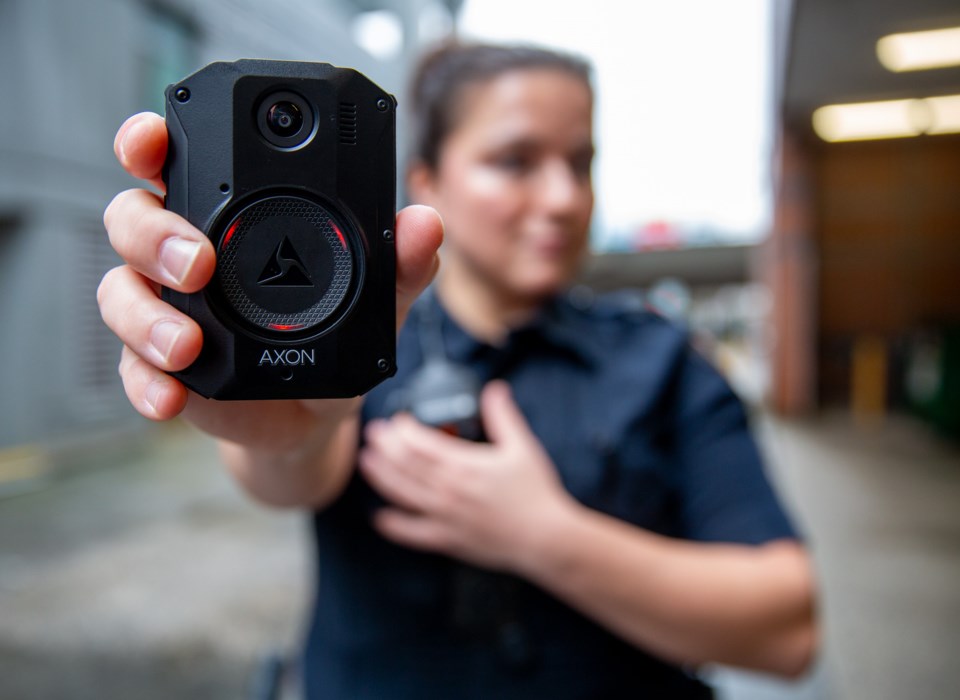
January
Vancouver police announced in the first week of January that 85 officers had begun wearing body-worn cameras as part of a six-month trial aimed at “enhancing trust and confidence through improved technology.”
The department said in a news release that officers working in the downtown core, the east side of the city and in the traffic section were deployed with the chest-mounted cameras.
Motorcycle officers were also to be outfitted with cameras.
“We live in complicated times, and it’s important that we do everything we can to keep your neighbourhoods safe, to protect your rights and to ensure Vancouver remains a first-class city,” said Deputy Chief Howard Chow in the release. “This is about trust, confidence and continuing to deliver the best service to the people of Vancouver.”
Since the launch, an evaluation was conducted and city council agreed in December to make the program permanent, with the goal to deploy more than 800 cameras to frontline officers.
Another 169 cameras will be made available to “investigative and administrative members” for use during call-outs and when executing a warrant.
Start-up costs were estimated to be $6.5 million in 2025, which includes one-time costs of $1.31 million. The cost to run the program in 2026 would be $5.11 million, and $5.26 million in 2027.
Council has since decided to phase in the money over a longer period.
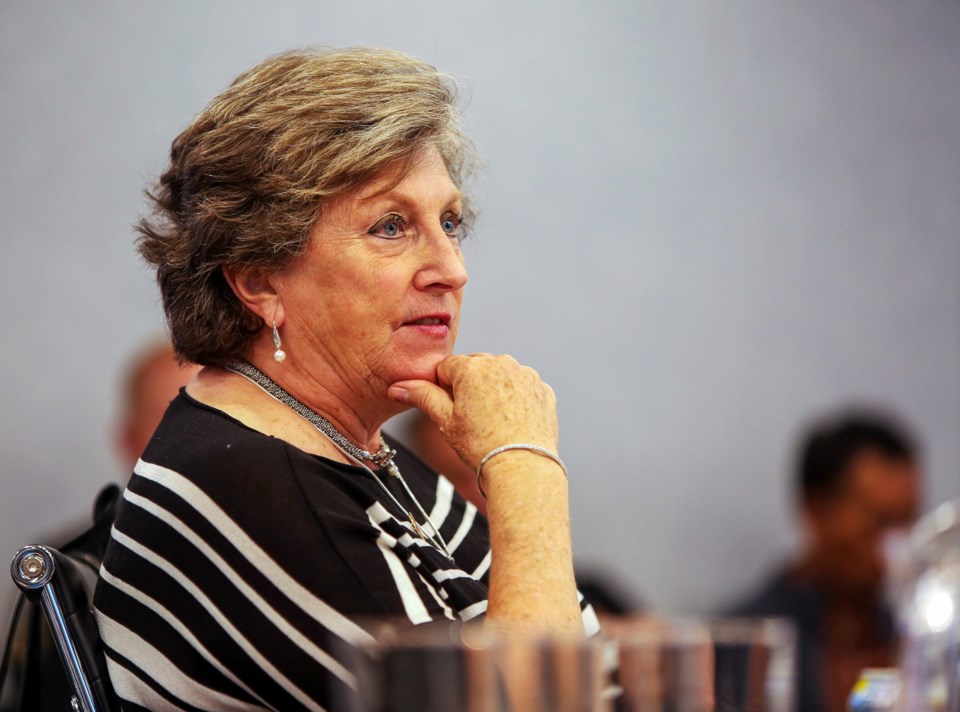
February
A high-profile member of the Vancouver Police Board who resigned Jan. 30 went public to explain the reasons for leaving her post on the independent civilian oversight body.
In a written statement provided to Glacier Media, Faye Wightman alleged interference in board matters from Mayor Ken Sim’s political staff, a “flawed” governance structure and concerns about potential conflict of interest related to two board members.
“I believe the governance structure at the Vancouver Police Board is flawed, and it was becoming increasingly clear that the best interest of the board itself, the public at large, and the Vancouver Police Department was at risk,” said Wightman, who served more than three years as vice-chair of the board.
“I felt compromised continuing as a director when I could see flaws in the system that were detrimental to effective governance.”
The mayor’s chief of staff, Trevor Ford, denied the allegations about interference.
Another police board member, Comfort Sakoma-Fadugba, resigned in November, which occurred the same week that Glacier Media learned executive director Jason Kuzminski was unexpectedly no longer on the job.
Sakoma-Fadugba, who was appointed to the board in February 2022, resigned after she made controversial social media posts raising concerns about the erosion of Christian values, immigration and “a woke culture that has led to the removal of Canadian heroes like Terry Fox from our passports, and the erasure of veterans from the same.”
The police board has yet to respond to Glacier Media about Kuzminski’s departure.
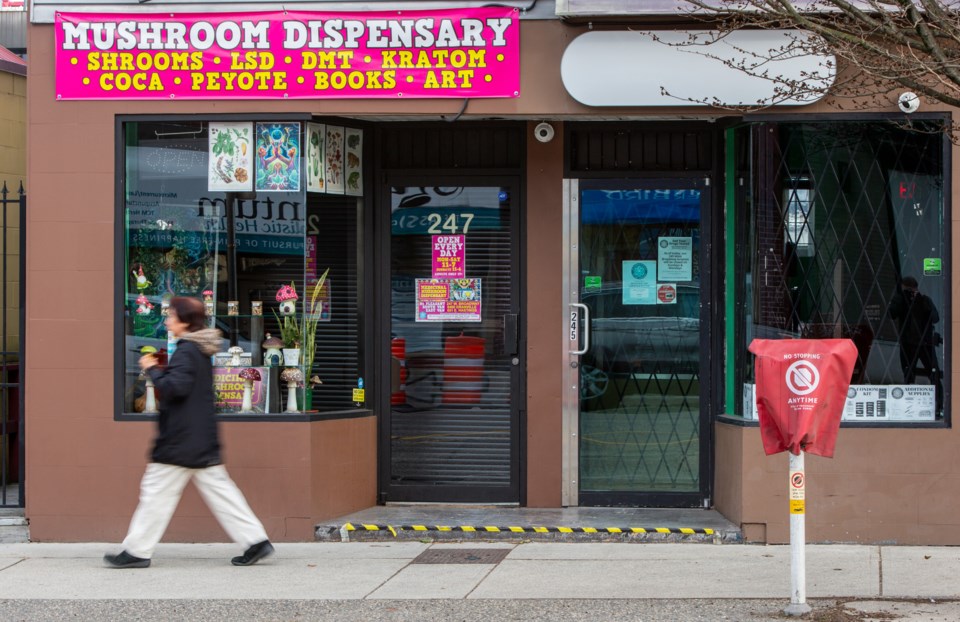
March
A Vancouver mushroom dispensary that was raided by police in November 2023 and had continued to flout a city order to close its doors won a significant victory at city hall in a controversial decision reached by council’s business licence review panel.
In a 2-1 vote led by Green Party councillors, the panel overturned a ruling of the city’s chief licence inspector Sarah Hicks to suspend the business licence of the Medicinal Mushroom Dispensary at 247 West Broadway.
“I'm very happy about this decision,” said Valentin Muller, director of 1394867 BC Ltd., which operates the dispensary. “I think it's a good first step. And I hope that we can work together with the city going forward and find common ground and come up with a proper licensing system for businesses like ours.”
The panel’s decision also went against the recommendation of city lawyer Robert LeBlanc, who warned that the purpose of the hearing was “not to advance advocacy with respect to any safe supply, or sale of psychedelic drugs.”
At the time, the motion from Green Party Coun. Adriane Carr had the potential to open the door for more illegal mushroom dispensaries to seek a licence.
But in April, Hicks ordered the operators of the dispensary on West Broadway to close their doors or face enforcement. The dispensary was still operating in early December.
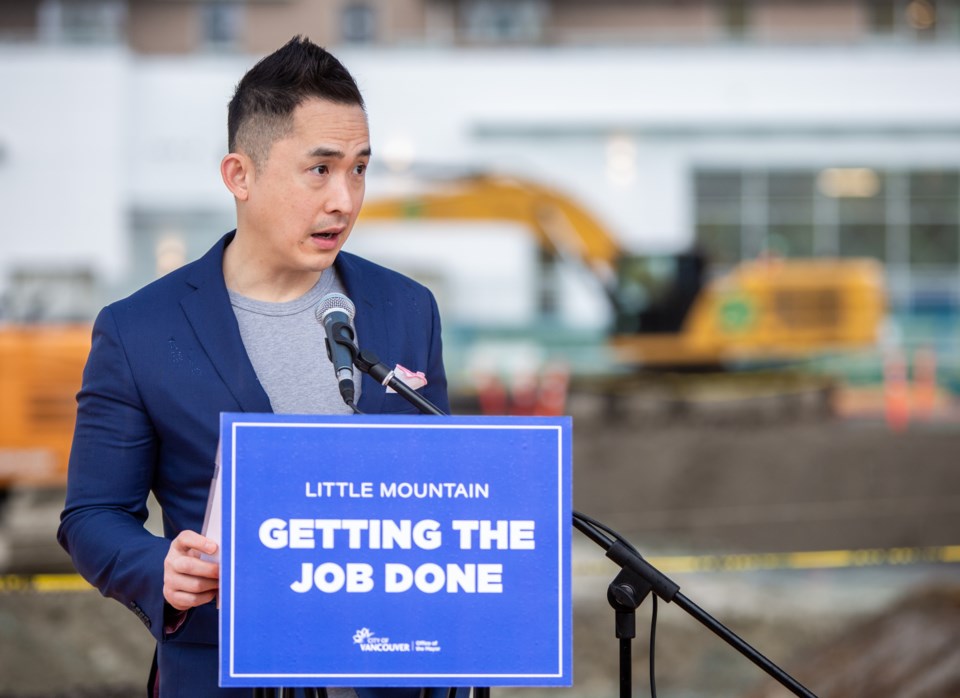
April
The developer behind the massive Little Mountain project in Vancouver which had seen little activity in 16 years apologized for the delays in building almost 300 units of social housing on the site.
Joo Kim Tiah of Holborn Properties Ltd. said at a news conference to launch the construction of a 48-unit social housing building that he “felt bad about the whole situation.”
“If it makes it any better, I would apologize for how it's taken so long,” Tiah told reporters at the site.
“It was never the intention. It's a very long backstory of why we're here, why it has taken so long. But I don't think we need to go there. What we can do is just focus on moving ahead as quickly as possible.”
Tiah shared the “backstory” with Glacier Media in November 2023, when he said Holborn wasn’t allowed to apply for rezoning until 2013. Council approved rezoning in 2016 and didn’t enact it until 2018.
Then the COVID-19 pandemic was declared in 2020, followed by inflation and rising construction costs. Tiah noted then — and at the news conference — that Holborn had still built one 53-unit social housing building and was close to completing a 62-unit building.
He promised in November 2023 and again in April that all 282 social housing units would be open before the end of 2026.
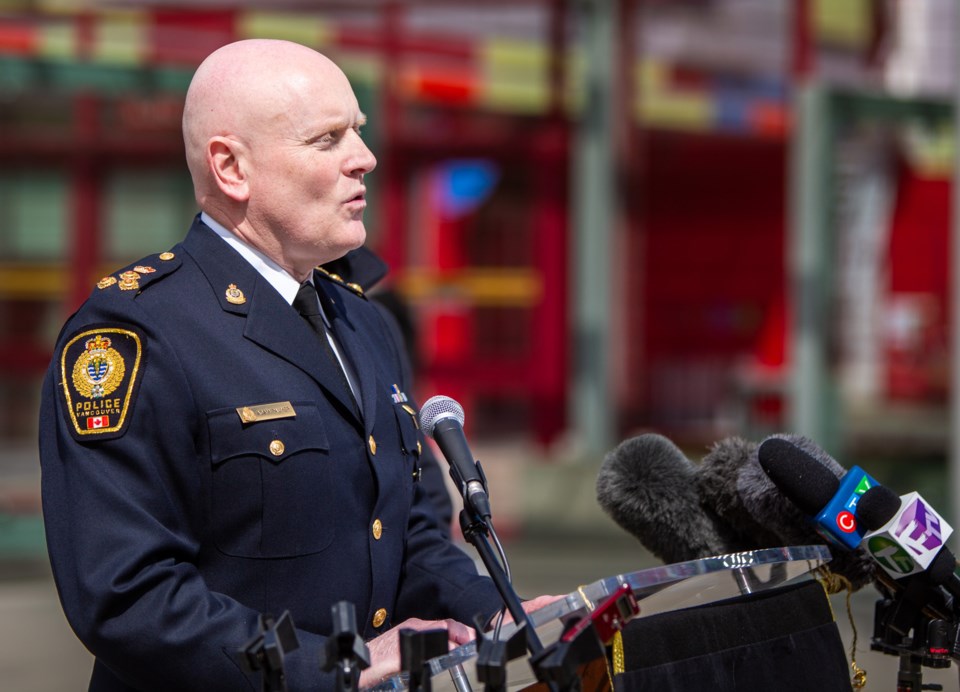
May
Vancouver Police Chief Adam Palmer told Glacier Media that public drug use had amounted to an “intolerable situation” across the city and he welcomed the provincial government’s move to amend B.C.’s decriminalization experiment.
Premier David Eby announced April 26 that his government was working with the federal government to return power to police to enforce against drug use in all public places, including hospitals, restaurants, transit, parks and beaches.
“It’s going to give us all the tools basically that we had before, which is going to be super helpful,” said Palmer of the pending changes, which at the time still needed to be approved by the federal government.
Under B.C.’s decriminalization experiment, which was approved via a Health Canada exemption, people in possession of 2.5 grams or less of fentanyl, heroin, morphine, crack and powder cocaine, methamphetamine or MDMA could not be arrested or have their drugs seized.
Palmer said the experiment, which began Jan. 31, 2023, had allowed people to use drugs in places where police would normally intervene. Prior to the new law, police could tell the drug user to move along, redirect them to an overdose prevention site or arrest them.
“You're getting people that are out with their families at the beach, and you've got somebody sitting right next to them smoking meth, or somebody's smoking crack — and there was nothing that police could do about it,” the chief said.
He added: “It's an intolerable situation. You've got open drug use on the sidewalks in different neighbourhoods, in Yaletown and Coal Harbour — all over the city. We're not just talking about the Downtown Eastside.”
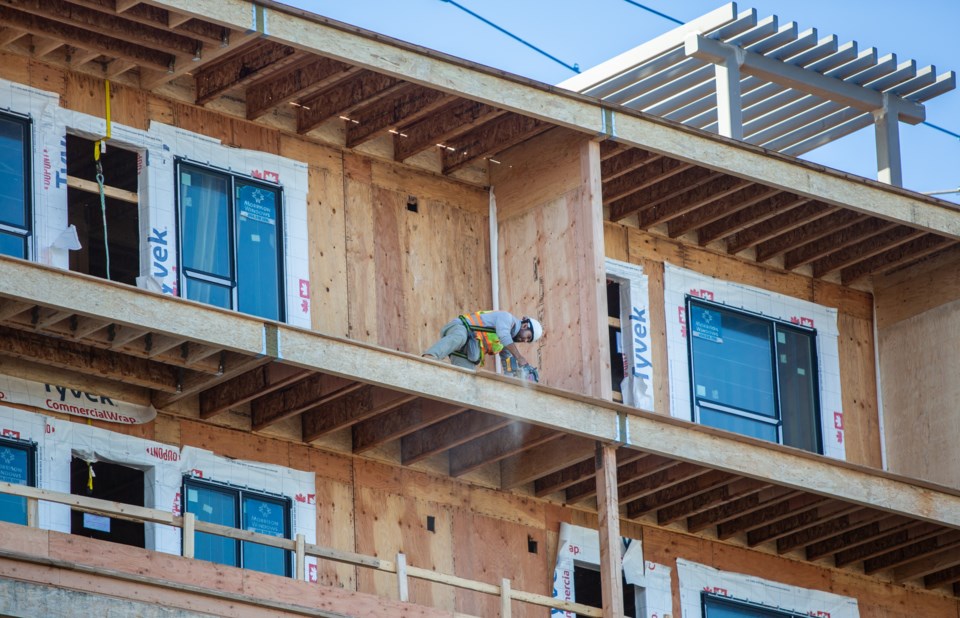
June
Vancouver was falling short of the first-year housing target set by the provincial government but city planners said in June they expected the number of completed homes to increase in the next few years and surpass the B.C.-mandated five-year target of 28,900 units.
In a presentation to council, senior housing policy planner Edna Cho said that 1,607 housing units were completed between Oct. 1, 2023 and March 31, 2024. The provincial government’s 12-month target is 5,202.
Of the 1,607, a total of 819 were rental and 788 for ownership.
“We know that there has been a decline in completions over the last two years due to a number of factors,” Cho said.
“In 2019 to 2021, we issued fewer building permits in large part due to COVID. In addition, there has been a significant increase in construction costs, labour shortages, higher interest rates, to name just a few of the reasons.”
At the same time, Cho continued, there is “an unprecedented number of projects in stream as well as a significant number of low-density housing units that we project will complete over the next five years.”
Cho expected the total number of housing units completed to reach more than 31,300 by March 31, 2028. That would surpass the target of 28,900 set by the provincial government last year.

July
Vancouver home builders learned that they may soon be allowed again to include natural gas for heating and hot water in construction of new detached homes — a surprising reversal of city policy established in 2022 that aimed to cut carbon pollution.
A bylaw had yet to be enacted but a request from ABC Vancouver Coun. Brian Montague at city hall in July directed staff to report back to council before Nov. 1, 2024, on a plan to implement the changes.
The move caused concern by staff tasked with leading strategies to reduce Vancouver’s carbon pollution. Brad Badelt, the city’s director of sustainability, warned council the policy reversal will negatively affect the city’s climate goals.
“It would set us back potentially tens of thousands of [tonnes of greenhouse gas emissions],” he said, noting the reversal will also cause confusion in the construction industry over what is permitted in new homes.
“We’ve been pretty careful in signalling changes in the industry. It also has the risk of creating retrofits [from natural gas to electric] in the not-too-distant future.”
Badelt added that progress is being made with BC Hydro over concerns of connecting new homes and multiplexes to electric power. The city has seen processing times for permits reduced, along with requirements for pad-mounted transformers, he said.
Pad-mounted transformers change high-voltage electricity to lower voltages for appliances and lighting in a home. The metal boxes are typically located near roads and sidewalks in a neighbourhood, sometimes on a lawn or in a garden.
In the end, council decided in November to stay the course on banning natural gas for heating and hot water in the construction of new detached homes.
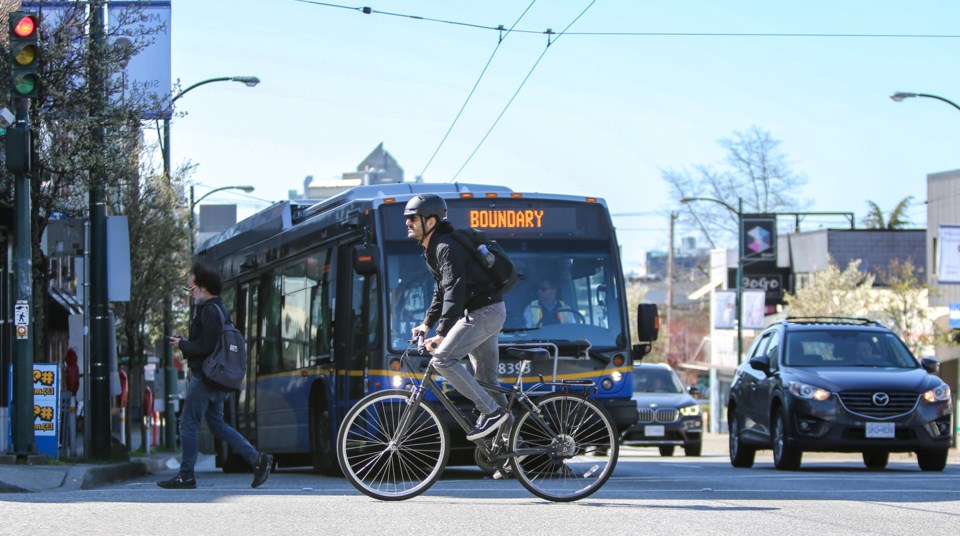
August
Council heard that Vancouver has seen a steady drop in the number of traffic-related deaths since 2007 and is continuing to see a decline in the number of serious injuries to pedestrians, cyclists, motorcyclists and motorists.
Data shared with council from city staff showed Vancouver had become a safer place on the roads than in years past, with fewer than 19 deaths per year recorded between 2008 and 2023.
“Each one of these numbers is a tragedy, but thankfully fatalities are rare events,” said Paul Storer, the city’s director of transportation, in a presentation to council. “It's a little hard to say how much of this is related to chance, and how much is a trend, so it’s important to look over the long term.”
The death toll was much worse between 1996 and 2007 when a total of 305 people died. That’s an average of 28 deaths per year. The highest number of fatalities — 39 — occurred in 1998. The lowest was eight in 2020.
In a slide that looked at 14 fatalities that occurred in a recent year, 60 per cent of the victims were pedestrians, 26 per cent were motorists, 12 per cent motorcyclists and two per cent cyclists.
The data showed serious injuries to cyclists dropped 56 per cent between 2011 and 2023. Pedestrians saw similar decreases in the same time period, with a 36 per cent drop. Motorists saw injuries drop by 1.3 per cent.
The data is based on serious injuries that occurred per 10,000 daily trips.
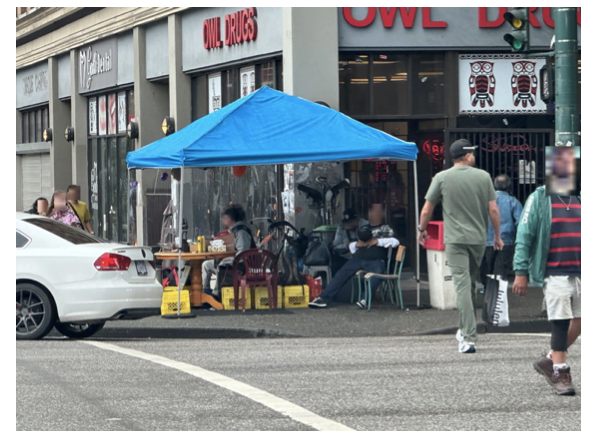
September
The Vancouver Police Department released a report showing that one Downtown Eastside resident was responsible for calling police 629 times between January 2021 and August 2024.
The majority of the calls related to concerns about people congregating and occupying the northwest corner of Main and Hastings streets, where a pop-up tent has been set up for many months, if not years.
The resident, whose name is not disclosed in the report, complained of music being blasted from a portable speaker below his window and alleged the people were selling drugs, cigarettes and alcohol.
“On any given day, you can stop on the corner and find at least two to three coolers packed with stolen alcohol, thousands of dollars of contraband cigarettes, thousands of dollars of drugs, several weapons and God knows whatever other stuff is there,” the resident alleged in one of his emails to the Vancouver Police Board.
His emails included images and videos of people on the corner.
Of the 629 calls, 435 were classified by the E-Comm dispatch service as a disturbance, 61 as an unwanted person, 23 for drugs, 19 for suspicious circumstances, 16 for assisting the general public, and 12 as a mischief in progress.
Another 18 were “classified by other classifications” and 45 calls were for unrelated disturbances in the area, according to the VPD report, which went before the police board Sept. 19.
During the same three and a half years, two other residents who live on the same floor as the complainant initiated a total of 41 disturbance calls for the same issues.
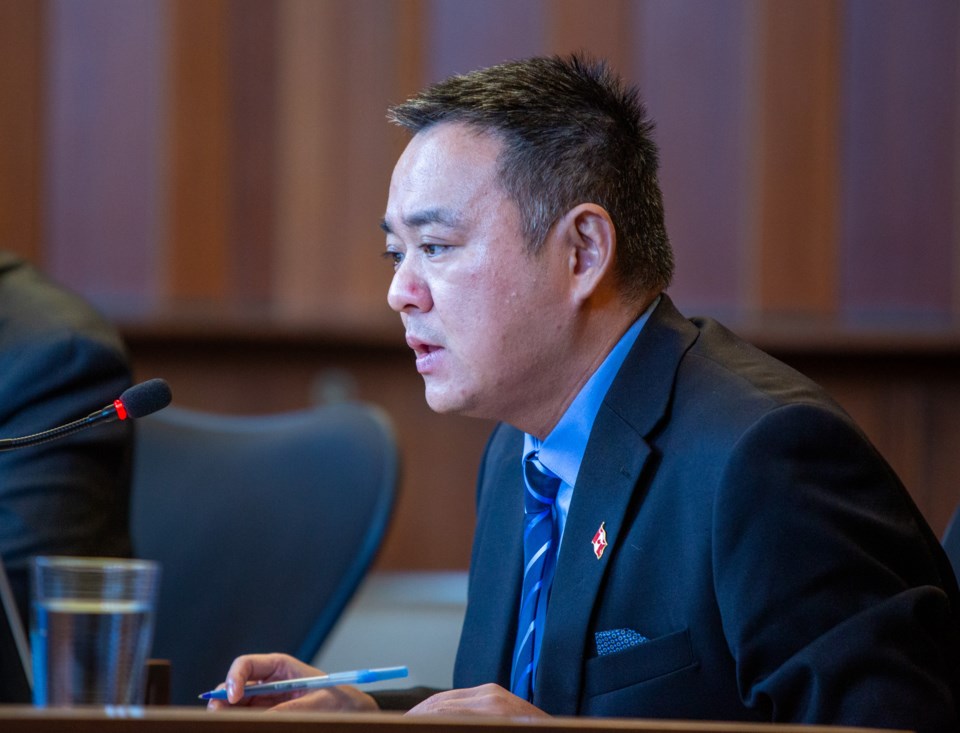
October
ABC Vancouver Coun. Lenny Zhou disclosed that he had met twice with the Canadian Security Intelligence Service (CSIS) since being elected two years ago and planned to meet again with agency officials before the end of the year.
Zhou, who was elected in October 2022, said CSIS reached out to him after the election to educate him about the agency’s concerns regarding foreign interference in Canada’s affairs.
He also met with CSIS in July at city hall.
“They are trying to meet me on a regular basis,” said Zhou, noting the meetings have been educational, with him being given tools on what to do if approached by someone suspected of being involved in foreign interference.
“I've learned a lot, and I have a very good relationship with people from CSIS.”
When asked to elaborate on “foreign interference” and which country or countries was discussed at the meetings, Zhou said “it’s from all over the place” but couldn’t release details and recommended contacting CSIS for more information.
John Townsend, a CSIS media relations officer, said in an email that he couldn’t discuss the specifics of the agency’s interactions with organizations or individuals, including Zhou.
But Townsend acknowledged CSIS routinely engages with government, the private sector, various organizations and public officials to discuss potential threats to the security of Canada and to provide briefings regarding specific threats.
“This can include elected officials,” he said. “CSIS delivers these briefings in order to promote awareness of the overall threat environment, the actions of hostile threat actors, and to strengthen individual security practices in order to protect Canadians and their interests.”
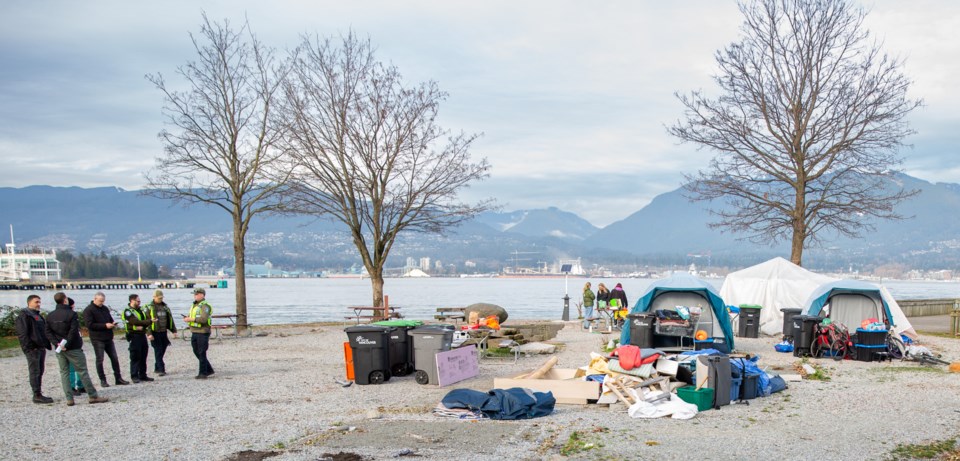
November
The CRAB Park homeless encampment came to an end.
Vancouver park board crews, park rangers and police moved into the camp Nov. 7 to dismantle the remaining tents, which were occupied by five people.
Outreach workers were present at the site to help occupants secure housing, health services, and income support as part of the transition from the waterfront community.
“Our intent is to get everyone in compliance by the end of day today,” Steve Jackson, the park board’s general manager, told reporters. “Obviously, we're taking our time with this to just make sure that we're giving folks the time they need to pack down [their tents].”
John, who declined to provide his surname, left his tent behind after securing housing at what he described as a newer apartment building in the Downtown Eastside. It is equipped with a shower and kitchenette, he said.
“It’s pretty good, but the rules kind of suck though,” he said, noting the landlord’s rules limit overnight guests to seven days per month.
The 64-year-old said he last paid rent several years ago at an apartment in Agassiz. A metal fabricator worker, he hasn’t been able to find a job since the pandemic was declared in 2020.
“It’s tough, and I ended up here,” he said, noting he was worried about what was going to happen to his neighbours from the encampment.
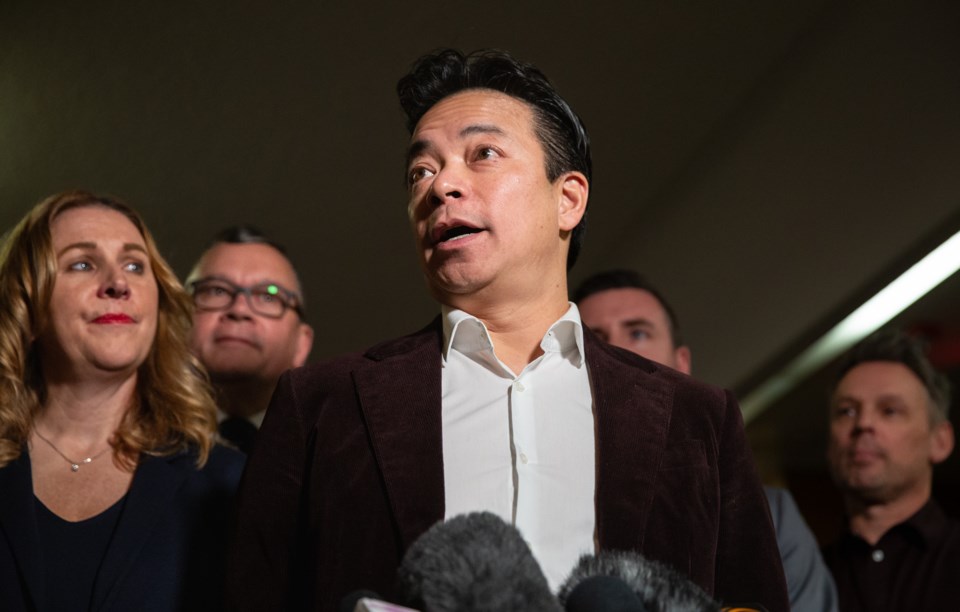
December
Mayor Ken Sim touted the approval of a 3.9 per cent property tax hike as “good news” after he and his ABC Vancouver colleagues were unanimous in their support for balancing the city’s $2.36-billion operating budget.
The increase — with one per cent of the 3.9 per cent to cover infrastructure costs — is much lower than the 7.28 per cent and 10.7 per cent hikes in the first two years of Sim’s administration.
The city’s communications department issued a news release after the council vote that said the 3.9 per cent increase coupled with an 18.2 per cent hike in utility fees will result in the following average annual increases for 2025:
• $54 for a condo or strata unit (assessed at $806,000), with an additional $78 increase in utilities fees.
• $149 for a single-family home (assessed at $2,209,000), with an additional $386 increase in utilities fees.
• $286 for a business property (assessed at $1,268,000), with an additional $377 increase in utilities fees.
“If you're a resident of the City of Vancouver or if you own a business in the City of Vancouver, if you support our team members, if you believe in fiscal responsibility, today is a great day,” Sim told reporters Dec. 10. “We've had a plan in place when we were elected. We wanted to bring fiscal responsibility back to the City of Vancouver.”
Reducing the higher tax rate — down from an initial seven per cent hike estimated by city staff in May — came from a combination of actions, according to a separate news release from the mayor’s office.
“This year’s savings were achieved by optimizing resources, enhancing efficiencies and refocusing on core services,” the release said. “Additional contributions came from increased dividends by optimizing the Property Endowment Fund — a key recommendation from the mayor’s budget task force.”
Note: Thanks for reading and all the best for 2025!
